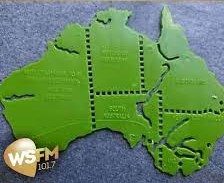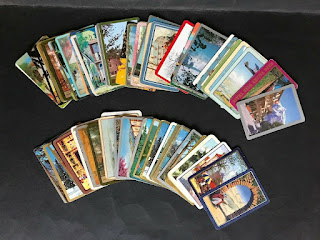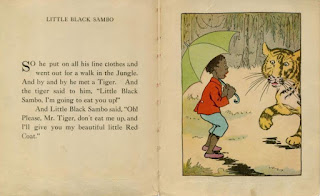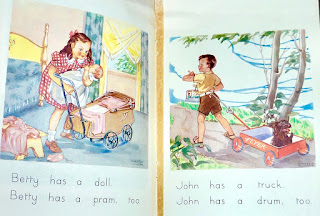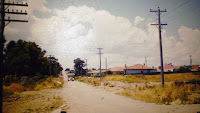Why Can't I Beleive (Music & Lyrics - Stephen Digby 1970)
The TV arrives
Australian TV only became colourful after I had left school for university in the mid 1970's.
The next type of information technology that came into my life was, unlike the ancient technology of books, a new global phenomenon heralding the start of the information revolution. I feel privileged to be living during this technological revolution (para phrasingt eh Chinese curse: "May you live in interesting times."). For me it has been a wonderful world of enjoying information access greater than any generation in human history. Information access dominates my recreation: music, entertainment, books, news - all are now delivered to me digitally. Information manipulation also became a major part of my career.
TV continued to dominate our entertainment and that of our children, Lucy and Sam for many decades with far tighter access contriols than I had to live with as a child. The content moved from the bloodless stylised violence and absence of sex, to gruesome realistic violence and ubiquitous and distorted sexuality. Nevertheless, it's shared experience maintained and defined many shared cultural experiences (the winning of the America's Cup) and icons (Crocodile Dundee) that has dissappeared in Australia.
Now in 2020, use of TV has shrunk to a tiny fraction of the previous dominance. Lib's addiction to the 7pm ABC news and the occassional "free to air" football match are the remaining vestiges. Most football matches, like other entertainment is direct from "streaming services" rather than from TV channels.
During my late primary school and early secondary school years (?), my love of classical music was developing through encouragement of my mother, Elspeth, membership of St Mark's Choir, piano lessons and the availability of a huge and growing vinyl record collection.
Phonograph record technology dates from the late 1800's and used a variety of materials to record and play back an analogue musical signal at increasingly high levels of quality. the vinyl resocrs that we collected are considered by some as th most HiFi (High Fidelity) recordings because of their "warmth.
The record collection was an accident of fortune arising from my father, Geoff's major contract employment as Art Director for the "World Record Club". This mail order vinyl record sales company received large numbers of returns - accepted with no questions aske. Many Saturday mornings, I would convince my father to take me down to <address> and allow me to select 20 or 30 records from the returns to take home. As these were destined to be pulverised we had no moral qualms. Through this process we accumulated over 2000 records. these records gave me and my mother many hours of pleasure. I
, many of which I digitally converted. In 2020, all this vinyl has at last been pulverised but the covers have been retained by Swinburne University of technology Art Department for their artistci and design merit.
I spend hundredsof hours cataloguing thes records adn in later years, re-recording them into digital format. Only a few hundred of these recordings remain in my 3000 track recording library as most have gradually been replaced by higher quality digital recordsings of the same or a better performance.
Much to the annoyance of my son, i also like "improving"
After TV, the next tech of importance in my life was radio. My love of radio started with glandular fever. I had a "crystal" radio with which I could listen to shows all throught the many nights that I could not sleep due to the fever. My night time companions were the Goons, the Argonauts Club https://en.wikipedia.org/wiki/Argonauts_Club, the News show that arrived at crash scenes before the Police and interviews witnesse live !!! (In 1969 there were 78 deaths per 100000 vehicles compared to 2014 when there was 4 deaths per 100000 vehicles !! https://en.wikipedia.org/wiki/List_of_motor_vehicle_deaths_in_Australia_by_year)
One of the most vibrant memories is the sound of oars propelling a boat in water on a silent night as occurred in The Argonauts more than once. Listening to this in a darkened room was somehow more poweful than any image I can imagine.
I still enjoy the intimacy of listening to disembodied voices but, apart from Lib's addiction to 7am ABC radion news, i hear these voices as "podcasts" usually while driving to and from work.
Technology took the next leap in 1974 when Scotch College secondary school started using the MONECS https://en.wikipedia.org/wiki/MONECS system to teach us programming as an activity within mathematics classes. We were taught the MINITRAN language and could test our programs by "punching out" "chads" from a card with a paperclip for every line of our program. The cards were sent to Monash university and our results were returned a day or so later. The disappointment of a single mistake creating a multi-day delay encouraged a very displined approach. The first personal computers in the worlds were to be manufactured within a few years. Nevertheless, I left secondary school still using a "slide rule" and Four-figure mathematical tables / G.W.C. Kaye and T.H. Laby https://library2.deakin.edu.au/record=b1427596~S1
==============================================================
technology took the next leap....
Change
I was lucky to be one of the first Australian students to be taught programming in school. In 1969, my maths teacher at Scotch College was involved with the introduction of computers at Monash University and taught my maths class Minitran. I beleive that he personally drove our punch cards to Monash and ran them through the MONECS system for us. This was 5 years before the official release of the system to secondary schools in 1974. https://en.wikipedia.org/wiki/MONECS
During my years at Uni studying medicine and pharmacology, digital technology was not used. At home during this time we were completly content with a 12in colour(?) TV inside a bedside cupboard as our screen, and a "cassette tape" player as music storage and listening system.
My next brush with technology was at Knox Technical School (location ? ) years ? where I was teaching maths myself. In 1982, the school principal was keen to get the computers into the school and obtained funding for a very new and innovative networkable computer developed by the BBC for education https://en.wikipedia.org/wiki/BBC_Micro. As the most technically literate, youngest and most enthusiastic maths teacher, I leapt at the opportunity to take charge of this project. Within a few months we had a very sophisticated network of 2 computer rooms complete with computer stands that I had designed and manufactured with the help of students. The BBC Micro ran a very sophisticated computer language called BBC Basic which, unlike standard BASIC, allowed subroutines to be called by name from anywhere in the program - a feature usually found only in higher level languages. This allowed far more flexible and interesting teaching projects to be developed.
The system also included a very sophisticated network server which "served" the computers a huge range of curriculum software whose quality compares well with many teaching programs available in 2020 ! (see graphs and green globs
In running this system for a few years, I acquired "hands on" skilsl in programming BASIC, Pascal, Fortran and knowledge of computer hardware management, networking and experience with a range of software.
I was sad to leave this technology behind when I accepted a promotion to run a teacher training network for primary teachers in Blackburn Primary School. Doubly, so when when I started work with the primitive Commodore 64 which ran on a network powered by standard audio cassettes which communicated digital data through sound that sounded like "white noise".https://youtu.be/ITfKILfsItA?t=52
In 1987(?), I was rescued from this cave via a promotion to manage the conversion of 4 portable classrooms in Parkmore Primary School into a Regional Computer Education Centre (RCEC). I got the chance to hire my own staff, design and contract the renovations, design and manufacture my own computer furniture..... but not choose the computers. The choice of the newest IBM Personal Computer, the JX, was determined by a state contract https://en.wikipedia.org/wiki/IBM_JX
Teacher education relating to IT was now my central area of expertise and interest.
In 19??, it, that is IT, also forced Lib and I to confronty the most important life choice of our lives.
I worked with a statewide team of RCEC managers that beleived that the state choice of the JX hardware lead to lower quality software options for education of students than the more expensive Apple computer systems.
In ???? just before muchledford
Apple offered me a job at 3 times my current salary contribute to their education design and marketing team.... in Sydney......
Lib and I thought long and hard about balancing a move to Sydney into the "fast lane" of high pay, corporate working hours, less secure employment, shorter working career followed by retirement to the country etc etc.... and most importantly and contentiously, whether and where children fitted into the picture. At last, after taking our relationship to the brink, we decided to decline the offer and and move to the country and start a family as soon as possible.
Back to IT.... Leaving the RCEC to take any Education Department job in Castlemaine, I lost all the hardware access that came with the job. I bought an Apple IIe computer with green monochrome screen and 2 5.25in floppy drives (The computer would load the operating system from one drive each time it started and then could load a program from the other drive (e.g. wordprocessor or Lady Tut) https://en.wikipedia.org/wiki/List_of_Apple_II_games
This computer was the only computer for years and it's use was mainly email, wordporcessing and games. Internet access in those days was via sound modulated modem which was unreliable and extremely slow.
When I transferred to Castlemaine Technical College which then amalgamated with Castlemaine High School, I was teaching mathematics nearly exclusively for a few years before gaining the job of school computer coordinator.
In 199???, when we went around australia in a caravan, I had set myself the task of converting a wonderful primary school maths resource into an online activity library. Using a portable 3 line display word processor, I worked on this in spare moments duringt he whole trip. The task remains unfinished - but still worthwhile as such quality teaching activities have never been superceded.
In those days there was no access to telephone contact while trabelling, let alone the internet.
We went through a number of computers
I have always beleoved that the best price and reliability is acheived by being a few models behind the latest.
Our next computer was an Apple Macintosh??
Bought Apple mac in USA and brought home unaware of the https://www.webopedia.com/DidYouKnow/Hardware_Software/MonitorHemispheres.asp
When the limitations of the social milleux for our children drove us to move back to Melbourne, I won a job as computer manager at Cheltenham Secondary College and stayed in that role until retirement.
IT Xbox
Apple "TV"
Books and their uses
Another unanticipated outcome from my browsing the family bookshelves was the discovery of "The Decameron of Giovanni Boccaccio" and soon after "30 Droll Stories" by Balzac (based on "Les Cent Contes drolatiques". Within the complex and verbose prose, I found, to my delight, that the stories were all about sex ! I am not sure whether mum or dad ever read them and my brothers were either not readers, or too young to penetrate the texts. For years, I enjoyed reading from these before sleep....
Bennetswood Primary School
First books
My parents believed strongly in the power of reading to support learning and thus education and thus success in life. My mother told me that I fell in love with picture books well before I could speak, and learnt to read easily and quickly.
I have no specific memories of being read to by my mother or father. Neither has my father although he is pretty sure that it happened ! It is sad that so much of the wonderful moments of childhood are not able to be recalled in adult life, but we comfort ourselves in the belief that they form a subconscious foundation belief in being loved and valued.
I was as scared as "Little Black Sambo" at the fierce tigers demanding clothes and other belongings. The tigers defeated themselved by their infighting and ended up as butter on pancakes !Memory
My memory allows full sequential replay for a few days back. Go back a few weeks and the snippets are frequent but the continuity is gone. The surviving memories - images, sounds, and sometimes smells - become gradually fewer and fewer the further back I journey.
Snippets of my life: Why bother ?
In the moment with COVID-19
At 6, I did not worry about destinations or deadlines. Responsibility was not in my vocabulary. I was “in the moment” and scanned the world with the eyes of a tourist. Somedays, there would be puddles to throw rocks into. On freezing mornings, panes of ice could be smashed. I was constantly scanning for objects to squash, scuff, pick up or throw. The freedom from adults was intoxicating.


